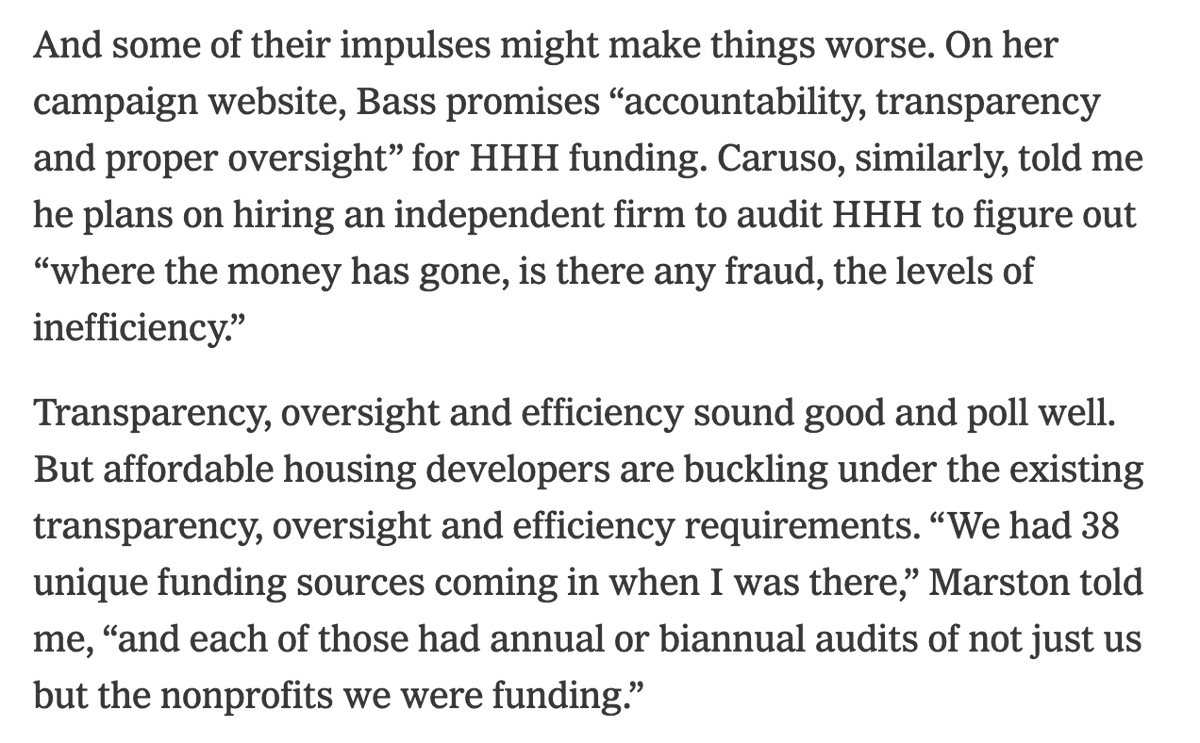Violent crime is spiking. Homicides in cities were up by 25-40 percent in 2020, the largest single-year increase since 1960. And 2021 isn’t looking any better.
This is a crisis on its own terms. But it’s also a crisis for the broader liberal project in two downstream ways.
This is a crisis on its own terms. But it’s also a crisis for the broader liberal project in two downstream ways.
First, violent crimes supercharges inequality. Families who can flee, do. Business close or never open. Banks won’t make loans. Property values plummet. Children are traumatized, with lifelong impacts on stress and cognition.
(@patrick_sharkey's work is great on this.)
(@patrick_sharkey's work is great on this.)
Second, fear of violence undermines liberal politics. Just look at America post-9/11. Or after the crime surges of the 70s and 80s and 90s — strongmen politicians win, punitive responses like mass incarceration and warrior policing rise, social trust collapses.
We’re not there yet. Larry Krasner survived his primary challenge in Philadelphia.
But we are seeing other signs. Atlanta Mayor Keisha Lance Bottoms isn’t running for reelection after being attacked by challengers as soft on crime. nytimes.com/2021/05/07/us/…
But we are seeing other signs. Atlanta Mayor Keisha Lance Bottoms isn’t running for reelection after being attacked by challengers as soft on crime. nytimes.com/2021/05/07/us/…
Chesa Boudin is facing a recall effort in SF. sfgate.com/bayarea/articl….
Violence is the second most important issue to Democrats in the NYC mayoral primary. — behind coronavirus but ahead of housing affordability and racial inequality. ny1.com/nyc/all-boroug…
The politics of this could really tip, and not just in cities — if these numbers keep getting worse, then as with Nixon and Reagan in the 70s and 80s, it could bring "law and order" conservatives (including Trump) back to power in 2024.
More than that, crime should be an issue liberals focus on eagerly. People deserve to be safe from crime and safe from state violence. That's foundational to a good life. Too often, they’re given a choice between one or the other, and it’s often a false choice at that.
So I asked @jformanjr, author of the Pulitzer-prize winning “Locking Up Our Own,” to come on the podcast and talk through the way crime warps politics, the legacy of the 80s and 90s, and what a liberal response to violent crime looks like: nytimes.com/2021/05/21/opi…
There is good news here: We know a lot more about what works to prevent violent crime — both in terms of policing and in terms of other institutions we can and should build — and we're not in an age of austerity. There's a lot we can do, and should do. But we need to do it fast.
One central piece of this response should be seriously investing in community organization and violence interruption programs that have been proven, again and again, to work. The American Jobs Act includes that, though it doesn't get much press: thetrace.org/2021/04/biden-…
Here's a fuller vision for how to scale that part of our safety infrastructure way, way up: squareonejustice.org/paper/social-f…
• • •
Missing some Tweet in this thread? You can try to
force a refresh







